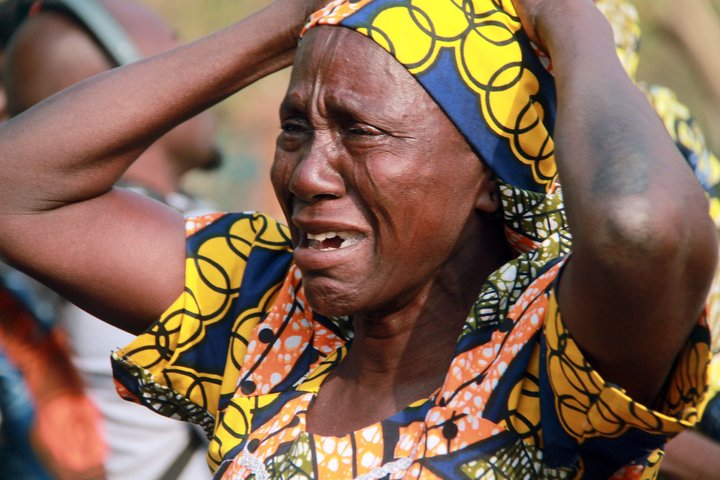Amid a rash of abductions in the Northwest Nigeria put at 1,000 students and pupils since December 2020, parents of abductees have been brought to their knees economically as they have sold off properties to raise ransom without assistance from the government.
A depressed father, whose seven of the 11 children were seized in Tegina, Niger State, gave a woeful and grim tale of the incident and how raising millions of naira to settle ransom to facilitate the release of his children has impoverished the family and virtually on the precipice.
The 40-year-old Abubakar Adam is now incapacitated and crippled as sold his car and a parcel of land and emptied his savings to raise ransom to secure the freedom of his children, who have been in the bush with the kidnappers among the 300 children seized three months ago.
Adam had sent his N3 million ($7,300) into the bush, together with payments from other families from Tegina.
Frustrated and devastated, Adam said the kidnappers collected the ransom, seized one of the men who delivered the ransom in the bush and made fresh demands for higher ransom and provision of six motorcycles.
Adam, a vulcanizer, said: “We are in agony. Honestly I don’t have anything left.”
Persecondnews recalls that President Muhammadu Buhari had asked state governments not to pay ransom to kidnappers as reechoed by Kaduna Gov. Nasir el-rufai, saying it will only encourage more abductions.
Instead, security agencies say they are launching offensives at the bandits to secure the release of the abducted school children.
But the parents know that the security agencies cannot free their loved ones.
Information Minister Lai Mohammed, in an interview with Reuters, defended the strategy not to pay ransoms.
Instead, he said, the government had destroyed multiple bandit camps and tried other approaches to tackle banditry.
He declined to give details, citing the need for secrecy around ongoing operations, but said all levels of government are working to free the children.
“We are winning the war against insurgency and we are winning the war against banditry,” Mohammed said.
Another parent, Aminu Salisu, whose eight-year-old son was taken in the same daylight raid on Tegina’s Salihu Tanko Islamic school in May, alongside 135 students, was on his knees, saying “We are begging the government to help.”
According to Salisu, he equally cleared his own savings and sold everything in his shop to raise ransom for his son.
The owner of the school sold off half the grounds. Together, with the help of friends, relatives and strangers, the people of Tegina said they raised N30 million, report said but the bandits would not budge.
Kidnappers collected more than $18 million in ransom from June 2011 to March 2020 in Nigeria, according to an estimate by Lagos-based analysts SBM Intelligence.

That flood of cash brought a flood of new kidnappers, said Bulama Bukarti, an analyst in the Extremism Policy Unit of the Tony Blair Institute for Global Change.
He estimated there were currently around 30,000 bandits operating in the Northwest.
“It is the most thriving, the most lucrative industry in Nigeria,” he said.
“Kidnapping has become a tempting career choice for young men at a time of economic slump, double-digit inflation and 33% unemployment.
“From December, we saw the Pandora’s box open. They saw it was possible. They saw that nothing happened to the attackers,” Bukarti said.
In December, gunmen kidnapped 344 boys from the Government Science Secondary School in the northwestern state of Katsina during a night-time raid.
The kidnappers released the boys a week later, but it set off a spate of similar kidnappings across the region.
The bandits took a page from the Islamist militant group Boko Haram, which seized more than 200 schoolgirls from the northeastern town of Chibok in 2014.
That group had ideological aims and forced some of the girls to marry fighters.
The armed kidnappers in the Northwest are motivated by money, experts say.
The abductions have piled more pressure on President Buhari, who promised to tackle insecurity at his inauguration in 2015.
They have also tested the security services. The military – pitted against the kidnappers in the northwest, Islamist insurgents in the northeast, separatists in the southeast and piracy in the Delta – is deployed to at least 30 of Nigeria’s 36 states.























Leave a comment